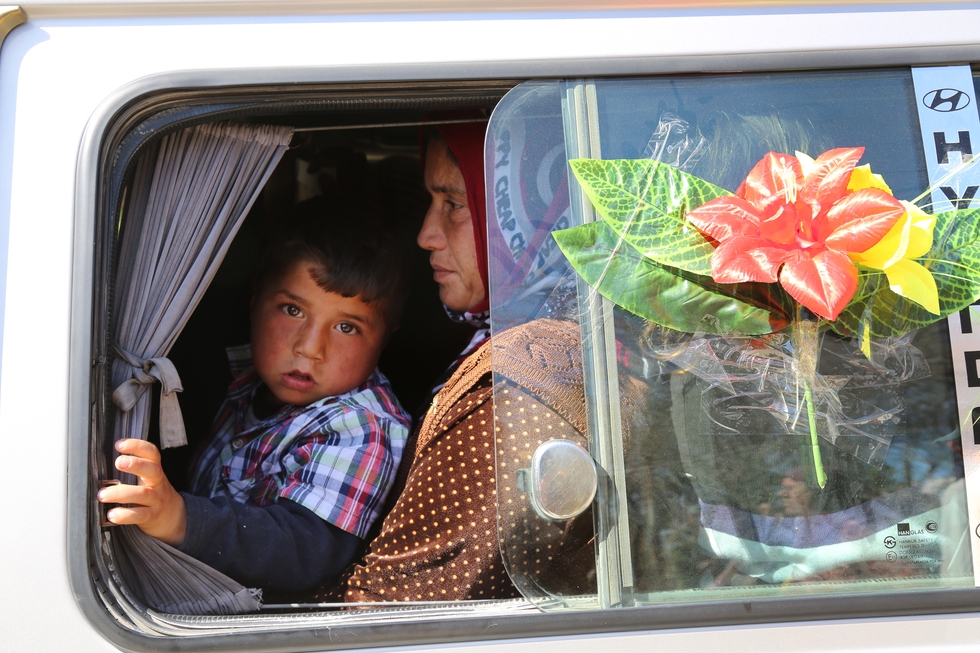Syria ceasefire fragile despite visible signs of progress: UN

Syria's ceasefire has shown clear signs of progress, the top UN envoy for the war-ravaged country said on Thursday, but he warned there was no guarantee it would succeed.
"The situation... on the ground could be summarised as fragile. Success is not guaranteed, but progress has been visible," Staffan de Mistura told reporters in Geneva as the cessation of hostilities entered its sixth day.
The ceasefire brokered by the United States and Russia came into effect on Saturday but does not include territory controlled by the Islamic State group or al-Nusra Front, which the UN Security Council deem to be terrorist organisations.
"The level of violence in the country is being greatly reduced. Ask the Syrian people," de Mistura said.
His comments came shortly before he entered a meeting of the UN-backed international task force co-chaired by Moscow and Washington that is overseeing the truce.
"In general, the cessation has been holding," he said, while acknowledging that "there are still a number of places where fighting has continued," including in parts of Damascus and Homs.
However, he maintained that incidents of fighting "have been contained".
There have been numerous reports that the cessation of hostilities – which differs from a complete ceasefire in that it was not negotiated with all parties to the conflict – has been violated.
The US State Department - which backs the moderate opposition - has set up a hotline to monitor reports of violations, but has acknowledged translation problems after admitting that only “some” of the hotline’s staff speak Arabic.
According to the US-based Syria Direct website, one US official mistook "Harbnifsah" - a frontline village - for "Harb Bebsi" or "Pepsi War".
Russia - which supports the government of Bashar al-Assad - said on Thursday afternoon that it had registered 14 violations over the previous 24 hours, though it did not specify who was behind them.
Despite violations, the relative calm has helped aid workers deliver desperately needed assistance to besieged areas where nearly half a million people are trapped.
Another four million people are living in areas that are hard to reach.
In the last three weeks, 236 trucks had been sent out to 115,000 people in besieged areas, he said, adding that by the weekend, aid workers were hoping to have reached another three or four areas in Kfar Batna in the Eastern Ghouta region, which are home to another 20,000 people.
De Mistura has said a new round of peace talks will resume in Geneva on 9 March, after his first attempt to engage the warring parties in indirect negotiations floundered last month.
He had been hoping to get started on 7 March, but acknowledged that logistical problems, such as finding hotel rooms for participants as the Swiss city hosts one of the world's biggest car shows, had forced him to push the talks back.
Since the talks would consist of indirect "proximity talks", participants would not all need to arrive by 9 March, with some expected to arrive as late as the 14th, he said.
Meanwhile, in the northern city of Aleppo, pro-regime forces have surrounded the city, which currently faces a devastating siege despite the declaration of a ceasefire, humanitarian leaders said on Thursday.
Senior members of the agencies leading the relief effort for civilians caught up in the almost five-year civil war expressed concern that the last road linking the rebel-held city to Turkey had been cut.
"Aleppo will be the next Srebrenica," warned Dr. Zaher Sahloul, a senior advisor to the Syrian American Medical Society, referring to the site of the most notorious massacre of the Bosnian war.
"Right now, the only road leading from Turkey to Aleppo has been completely cut off by the Kurdish group that allied with the government," he said.
"And now we are expecting the remaining 300,000 people in the city of Aleppo to suffer the same way other people are suffering."
Stay informed with MEE's newsletters
Sign up to get the latest alerts, insights and analysis, starting with Turkey Unpacked
Middle East Eye delivers independent and unrivalled coverage and analysis of the Middle East, North Africa and beyond. To learn more about republishing this content and the associated fees, please fill out this form. More about MEE can be found here.




